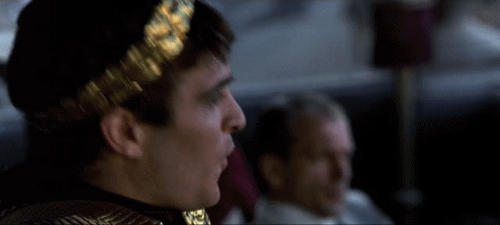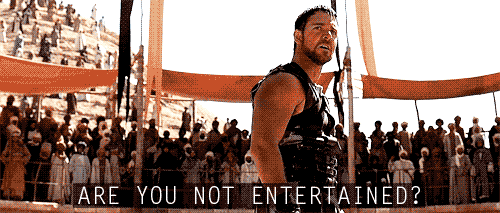Film Review
Bram Stoker’s Dracula (1992) -
The lurid, intense backdrops, the self confident cinematography and grandiose displays of emotions make this an experience seen to be believed. In short Bram Stoker’s Dracula is completely bonkers. We are no strangers to Coppola’s cinematic madness as the chaotic atmosphere of Apocalypse Now revealed. Dracula carries on this trait, including a baby getting eaten, Dracula’s tears melting his face, Anthony Hopkin’s full ham and Keanu, I'm a plank,Reeves.
Because of it’s visual excellence it has to be one of my favourite films of all time. I am all for visual, scenery and costume porn and this Gothic classic has these components in spades. Double that with my affinity for Gothic atmospheres and I’m sold. I have always enjoyed books, movies television series of the Gothic variety and I imagine I will cover the genre in detail at a later date, so when I encountered a movie based on one of the greatest gothic novels of all time, directed by one of the greats and starring a nutty Anthony Hopkins how could I not be on board? The movie pans out similarly to the 18th century novel. Vlad Dracula (Gary Oldman) is a member of the Order of the Dragon who after defeating the Turks returns home to find his wife, Elisabeta (Winona Ryder) has committed suicide after false news of his death. Enraged that she cannot get a Christian burial, Vlad renounces is god in an awesome scene and becomes a vampire. The rest of the film is based around his quest to reunite with his reincarnated lover and to evade the men trying to stop him.
 |
| The calming blue of England to the fiery heart of Transylvania |
I think the most notable feature of this movie is it's imagery and use of colours. Francis Ford Coppola is known for using rich deep colours to express psychological darkness in his films, most famously Apocalypse Now’s blood stained Vietnam skyline. Dracula doesn't shy away from this either since the whole premise is that “The blood is the life”. The film starts with velvet smoke curving around the domed head of a church framed by a rust sky then switching to a shot of a stone cross smashing on the ground, symbolising the fall of god. The film however is not about the fall from god but of the consequences of grief. The use of vibrant crimson reds and more subtly, sinister rust colours put more emphasis on Dracula’s obsession with blood and more interestingly with reuniting with his lover, since the colour also symbolises passion.
 |
| Amazing use of hellish colours and camera angles |
Also the reds can be used to symbolise uncontrollable anger, the very emotion that Dracula succumbed to when he gave himself to Satan. These three themes, blood, passion and rage are the core themes of the film. You notice in contrast to Transylvania the colours used for England are rich but more calm and refreshing. The emphasis on nature, wistful blues and greens adds to the contrast of the cerebral Upper class of the English and the potent mysticism of the Carpathian.
It’s these rich and engrossing visuals that really draws the audience in, makes the audience feel the emotions associated with the carefully chosen colours.
The dramatic soundtrack was composed by Wojciech Kilar and it works perfectly to capture the Eastern European theme, thunderous mountain ranges and the tumultuous emotions with his minimalist yet majestic style. Annie Lennox (who i’m not a fan of at the moment) also provided her later smash hit Love song for a Vampire to the soundtrack.
 |
| Can I have this as my study? Please? Utterly gorgeous. |
Another aspect worth mentioning is Coppola’s use of shadows. The use of the shadows acting outside of the physical body’s current state was another way of emphasising the supernatural elements of the movie. Due to the metaphysical components of Vampires, certain laws may not apply to them. In this sense the shadows were liberated from the caster and a second actor’s shadow was used to create the effect of Dracula’s shadow moving independently. I enjoyed the details such as these included in the movie, the subtle effects that put emphasis on the themes. This being the intangible and uncontrollable nature of Vampires. Coppola’s play with shadow puppets in the prologue due to budget limits also shows his creativity and ability as a director.
 |
| Oh look, he has a bra on his head. |
The characters are close to the novel but I do have my favourites. First there is the masterful Gary Oldman. He masters the Romanian accent perfectly, and with great skill performs as an old eccentric Count as well as a younger more charming version of Dracula. Along with Christopher Lee I think he may be my favourite take on the iconic character, bringing menace and charm in equal measure. Dracula is different in this version, he is more human, the motivations for his dreadful actions is not just power and depravity but his love for Mina. In the novel Dracula is more beast than man spurred only by a need for dominance and blood. Oldman's extraordinary talent manages to save the film from ruin thanks to our favourite soulless pit: Keanu Reeves.
 |
| Young Sirius Black *o* |
Which brings us onto: Jonathan Harker, a man so boring you wonder why Mina doesn't choose one of Lucy's three suitors to marry instead. I do not know if it is his wooden acting or the insufferable righteousness of the character but Jonathan Harker is the least interesting of the many men in this movie. And just wait for how he says the line "I know where the bastard sleeps, Carfax Abbey" https://www.youtube.com/watch?v=moaW8LRusak - Good God
Then there is Mina Harker played by my usual 90’s favourite Winona Ryder. I regret to say, even though I consider myself to be a Winona living in a world made for Gwyneths, that she wasn’t suited as Mina. The character reminds me of a wet towel, kind of useless but necessary for plot reasons. You actually wonder why the striking Count has the hots for her. However since she was such a 90’s darling the casting is understandable.
Anthony Hopkins shows full ham and a dodgy accent as Van Helsing, however still remaining endearing and entertaining to watch. Van Helsing is played more eccentrically in this adaptation when in previous versions he is presented as a more cerebral, calculating individual. Let's not talk about Hugh Jackman's portrayal.
Out of Lucy's three suitors I warmed to Dr Seward the most. Richard E Grant plays him with an awkward charm and maintains the most interest for the character.
 |
| Richard E Grant at his best. |
However the scene stealers in the movie comes in the form of both Renfield and Lucy Westenra (Sadie Frost). Reunified's insanity is played brilliantly by Tom Waits, fully harnessing the character's disgusting nature in order to creep out the audience and obviously enjoy himself in the process.
And then there is my personal favourite, Lucy Westenra. Lucy contrasts Mina's uptight, conventional 18th century woman perfectly with her free way of speaking and flirtatious nature. She is presented as a sexually liberated and fun young lady who isn't afraid of speaking her mind and owning her strengths. Which is something to admire as she could almost be modern, it is easy to see how her unconforming attitude is attractive to all three of her besotted suitors. However instead of being revered as a Feminist revolutionary, due to the cultural backdrop of the book, Lucy is affectively "punished" for her frivolity and killed. She becomes one of the "demon" women who have close parallels with women who dare to stray out of the lines of what is expected of conforming ladies who know their "place". However I commend her for going out with such fabulous style in an unforgettable death scene.
 |
Lucy's hair and choice of clothing is also in keeping with the film's visual aesthetic, with both her dresses and tresses being red it emphasises not only her foreboding connection with blood (becoming a vampire) but her passionate and dangerous nature. Dangerous in the sense to the status quo, of the natural order of individuals, Lucy strays out of the role of a typical woman so is seen as a danger to the hierarchy. Thus that danger is presented visually in the colours closely associated with her. I also find the scene where Lucy is seen walking in a trance through the storm as particularly stunning, the long stream of silky red fabric symboling the blood that has yet to be spilled, but why she needed to be raped by a wolf I will not understand. Though I did mention that this movie is complete bonkers.
 |
| Most visually stunning GIF goes too.... |
I loved a lot about this film as I have mentioned, it is a visual feast for the eyes, the score fits the atmosphere perfectly, the story is engaging and classic and never loses your attention. It is possibly one of the top vampire films to ever have been made as it sticks with the mythology classically and doesn't involve any sparkling or day walking. It doesn't hold back, it knows that Blood is the one of the main themes so it focuses on shots of gushing pools of blood, pouring into cups, spurting out of sacred altars, being licked off razors or as a homage to The Shining(1980), exploding through a bedroom. This excess is expected from Coppola and it puts emphasis on the insanity and blood lust of the Vampires. I also throughly enjoyed Sadie Frost's, Tom Waits and Gary Oldman's performances.
However the film loses out with some miscasting, the choosing of Keanu Reeves was a disaster as I have seen more facial movement and expression from a goldfish. Winona is an awesome kooky chick, but she was not well suited as Mina, though i think that was more based on how boringly the character was written not out of fault of her own. Some may also find the movie not to their taste because of it's overblown nature and artistic style.
I give Bram Stoker's Dracula 4 stars out of 5 due to its visual, musical and cinematic extravagance that never stops thrilling you. Especially if you are a fan of the gothic subculture you will vastly enjoy this film for its ability to maintain the foreboding atmosphere while presenting a visual masterpiece. However view Keanu's scenes with a pinch of salt and chuckle, it is easier that way.
 |
| Further reaction to Keanu's accent. |
I give it 2 stars out of 5 on the Feminist rating scale due to there being more than one prominent female character, though they do fail to talk about anything but men and naughtiness. However Lucy is very interesting and I would have liked more prominence on her character but she definitely represented a rebelling unconventional female who is ultimately put in her place with a stake.
If you enjoyed Bram Stoker's Dracula you may enjoy some of the films that inspired it: Nosferatu (1922), Horror of Dracula (1958)
As well as other Gothic/ Vampire films: Interview with the Vampire (1994), The Craft (1996), The Crow (1994),
 |
| This however, greatly appreciated Mr Coppola |






